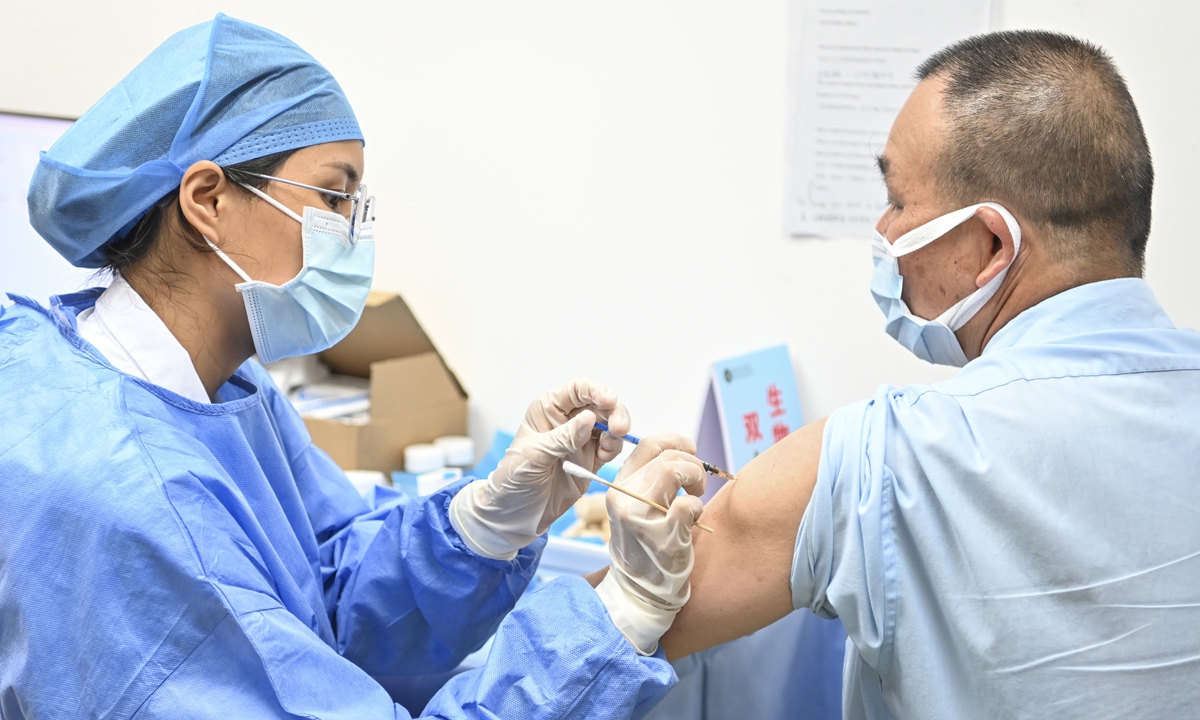Booster shots for early vaccinated group will be planned under big data analysis to combat mutant strain threats: China CDC

A medical worker inoculates a local resident with COVID-19 vaccine on Monday in Guangzhou, capital of South China’s Guangdong Province. The city had administered 10 million doses to more than 7.25 million people by Sunday. More than 500 million doses of COVID-19 vaccines had been administered across China as of Sunday, the National Health Commission said Monday. Photo: cnsphoto
Chinese health authorities said they will determine when to administer booster shots for COVID-19 based on analysis of early vaccinated groups to combat the threat of mutant strains, which Guangzhou and Shenzhen in South China's Guangdong Province have been experiencing in the latest outbreak.
Shao Yiming, a leading physician and immunologist from the Chinese Center for Disease Control and Prevention, said on Sunday that data from people vaccinated six months ago is now being analyzed, and preliminary results showed that the antibody levels for about half of them are still good.
"With the support of scientific data, we will determine when people who have been vaccinated for a long time should be immunized with a booster injection," he said.
Experts said the priority for China is to complete the initial vaccination and build up an immune barrier as soon as possible.
Shao's comments came in response to concerns that the antibodies of people inoculated during China's first batch of vaccination will remain effective six months after they received injections and whether they need to be re-vaccinated, especially as the world is faced with threats of coronavirus mutation.
In the latest COVID-19 outbreaks in Guangdong, the resurgence in the province mainly spread in two chains in Guangzhou and Shenzhen, with virus strains found to be from strains detected in India and the UK, respectively.
"The existing variants can only cause the neutralizing antibody level to drop, but the protection rate still remains above 50 percent, so the current vaccines can cope with variations of the virus," Shao was quoted as saying in an interview with CCTV.
However, he stressed that people need to quickly get vaccinated to block the mutation of coronavirus.
"If we want to block the mutation and prevent it from becoming a strain that can completely escape the immune surveillance of vaccine, we have to stop its spread and not give the virus chances to keep mutating," he said.
He added that China is developing a new generation of vaccines, and the inactivated vaccines are particularly well suited to responding quickly to the mutant strain.
Global Times
